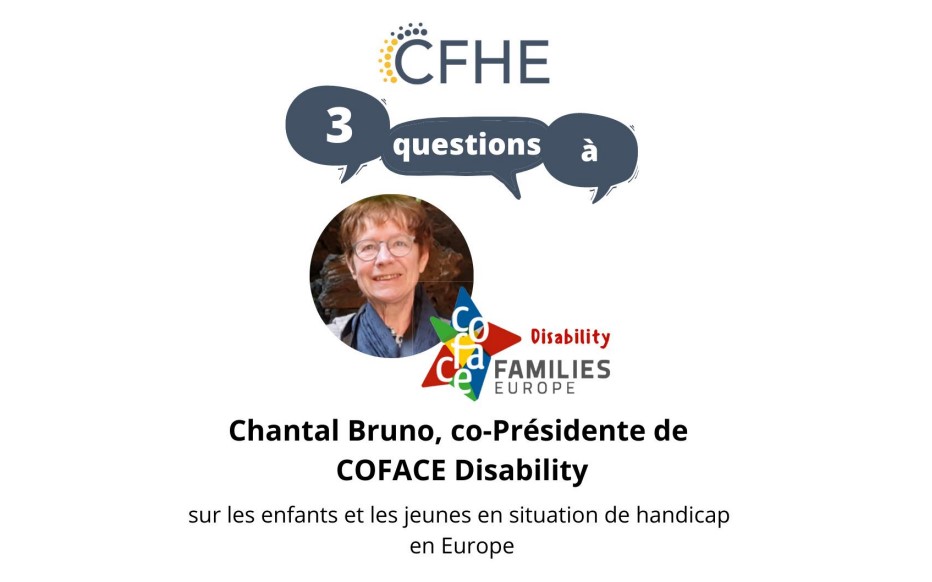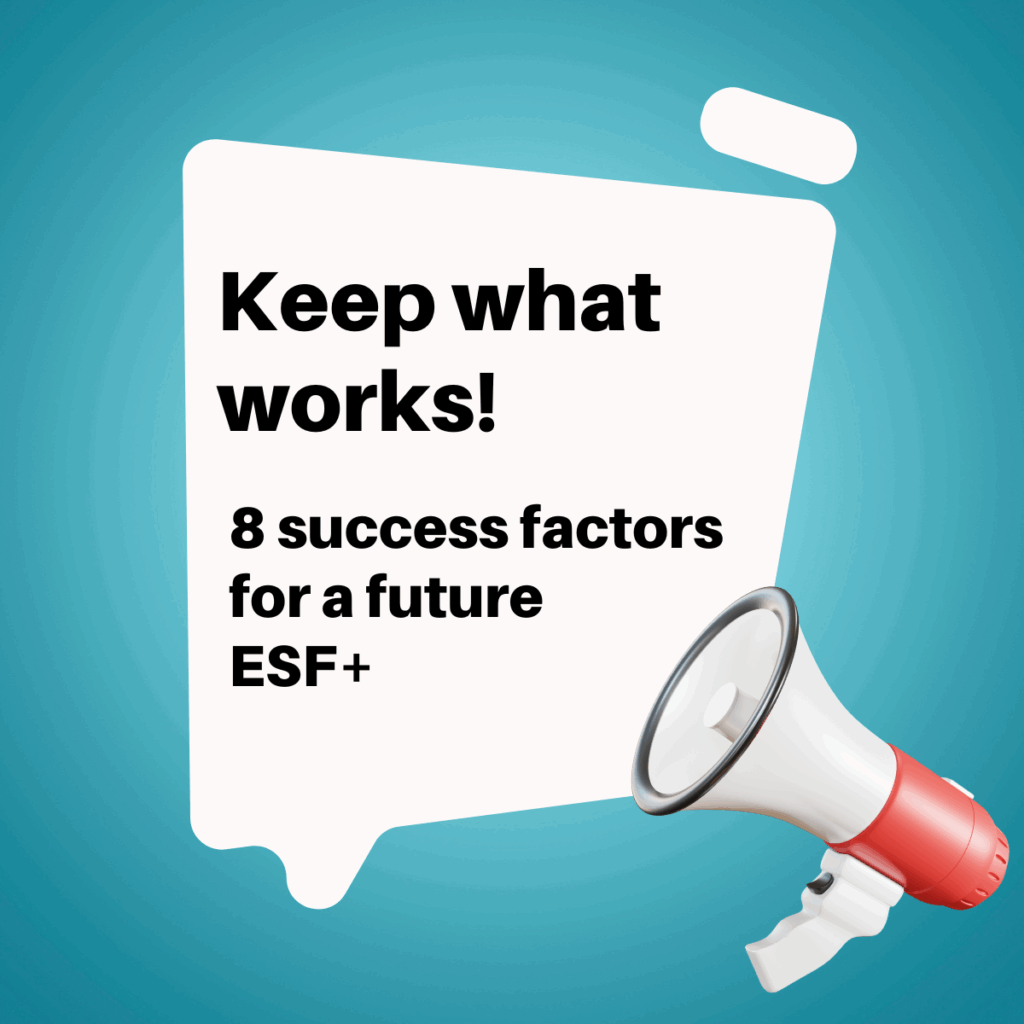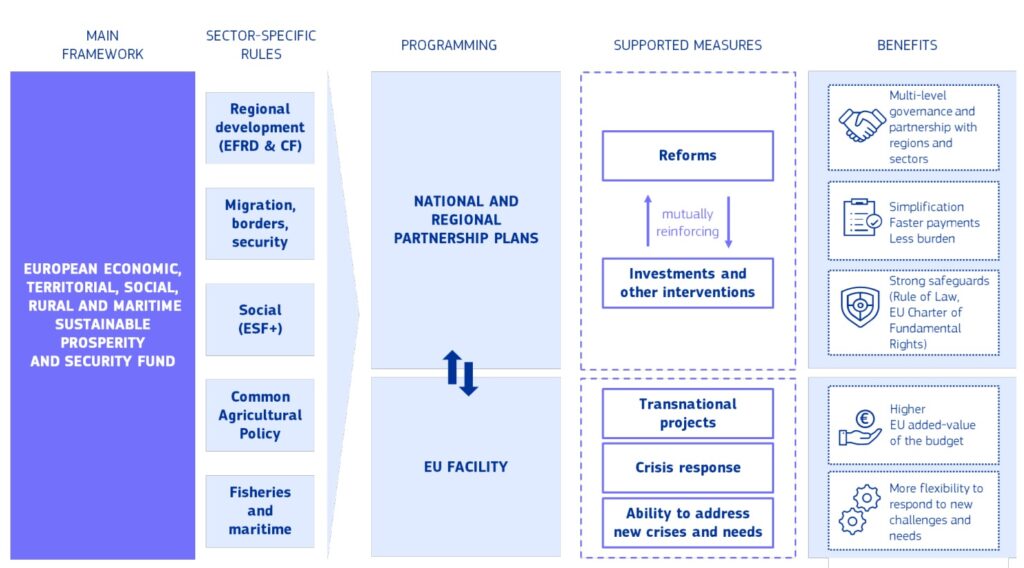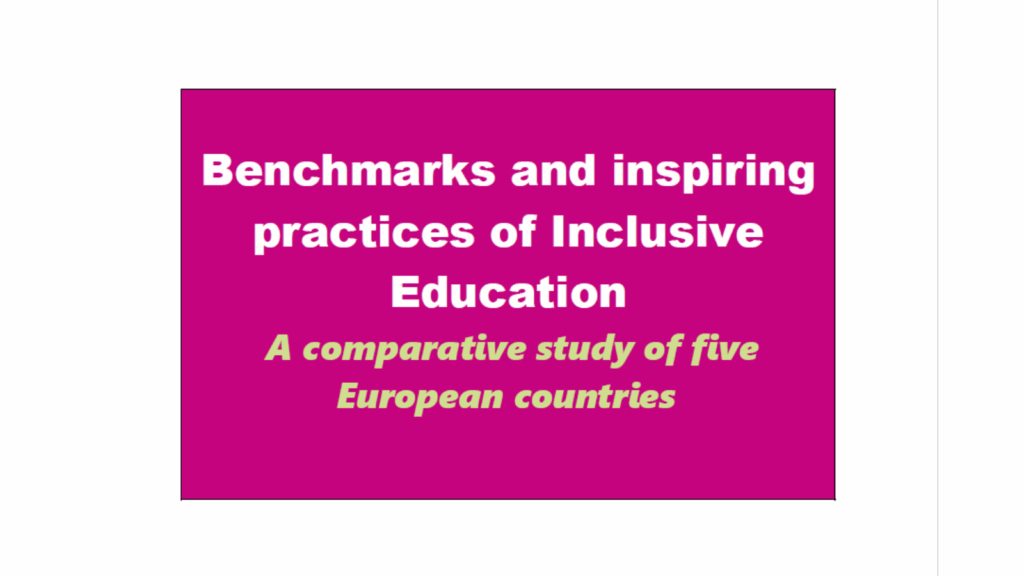Chantal Bruno, the COFACE Disability co-president, was interviewed by the CFHE (Conseil Français des Personnes Handicapées pour les affaires Européennes et internationales) to discuss our work for the rights of children and young people with disabilities in Europe.
- Can you introduce COFACE and the COFACE Disability strand?
COFACE Families Europe is a pluralistic network of civil society associations (NGOs) representing the interests of all families, without discrimination. It promotes at the European level policies of non-discrimination and equal opportunities between people and between family forms, and specifically supports policies aimed at equality between women and men. With 58 member organisations in 23 European countries, COFACE Families Europe represents over 25 million families in Europe. It is supported by the European Union Programme for Employment and Social Innovation (EaSI). Founded in 1998, COFACE “Disability-Plateform rights of people with disabilities, their families and carers families and carers”, aims to improve their representation and to support the recognition and exercise to support the recognition and exercise of their rights throughout life.
- How is COFACE mobilising around the new European issues, especially the European Strategy on the Rights of the Child?
Our mobilisation is based on the United Nations Conventions on the Rights of the Child and on the rights of persons with disabilities, which are framework documents for COFACE and COFACE Disability. Thus, all our work is directly linked to the principles of the two Conventions, applied in our work, in all areas that affect family life and the advocacy and of their rights. Like the European Commission, which worked with civil society organisations to consult directly with children to find out what they wanted to see in the Strategy, COFACE Families Europe also works on participation. To mark International Children’s Rights Day, for example, we are organising a webinar on family relations in the digital age, where children will be an integral part of the expert panel. Children’s rights in the digital age are also one of the main lines of action of the European Strategy. In terms of advocacy, COFACE and COFACE Disability are working with organisations specialising in children’s rights, bringing both the expertise of our members on family policies and ensuring that children with disabilities and their rights are represented in the discussions. The Strategy explicitly refers to the Convention on the Rights of Persons with Disabilities and we are working to ensure that all actions under the 6 priorities of the Strategy (political and democratic participation, socio-economic inclusion, health and education, combating violence against children, and child protection, child-friendly justice, digital and information society, global dimension) include children with disabilities. Unfortunately, the Council of the European Union failed to agree on the adoption of the Strategy at the Member State level. This was a shock and a disappointment, expressed in the publication of a joint statement with 17 other NGOs. We will of course continue to work to ensure the dissemination of this text and its implementation for all children.
- What is the Child Guarantee? What opportunities does it provide for children with disabilities?
The Council adopted the European Child Guarantee with the aim of combating child poverty and social exclusion and promoting equal opportunities. The aim is to especially take into account children from disadvantaged, homeless, disabled, migrant or racial or ethnic minority backgrounds who need specific responses “in order to guarantee them a better future in their adult lives” (Ana Mendes Godinho, Portuguese Minister of Labour, Solidarity and Social Security). For children with disabilities among the other three, educational poverty and the risk of social exclusion were already known and significant problems. Their various difficulties have been greatly accentuated and made visible by the health crisis which has broken down inequalities (digital inaccessibility, no access to care, etc.).
The opportunities for children with disabilities are to be found in the findings and recommendations of the guarantee, which identify a number of actions through which the inclusion of children with disabilities (who have the same needs as all children: eating, learning, moving around, etc.) among the others is finally achieved. But also, an awareness of different obstacles and the need to provide adapted, personalised (specific) responses to remove these obstacles and allow all children to exercise their rights (as set out in international conventions). Among the opportunities, we note the consideration of families (and therefore also carers) which should be supported so that they can remain, become or become again a favourable environment for the development of children.
The adoption of the Child Guarantee is the product of a long advocacy work in which COFACE has actively participated in (See the press release for the publication of the Guarantee by COFACE and the EU Alliance for Investing in Children). Unlike the Strategy, the Guarantee was adopted by the Member States unanimously in June, and we issued a press release on that occasion. We have been carrying out constant and transnational analysis and reflection on child policies and family policies, which must work together and reinforce each other.
This is what we call the multi-generational approach, which allows us to address, among other things, the intergenerational cycle of poverty and social exclusion (one of the objectives of the guarantee). It is this multi-generational vision that we express in our Child Compass, in which we set out the different policy areas to work on in order to end child poverty, which is not just a social issue! We are also actively involved in the EU Alliance for Investing in Children working group that has been leading the advocacy work on the child guarantee, bringing together dozens of NGOs working on different child-related sectors. In this group, we represent the family perspective with which we stress, among other things, the importance for all families to have access to sufficient services, resources and free time to be able to participate fully in society.
Children with disabilities are one of the groups for which the guarantee advises states to work at the European level. However, for its transposition at the national level, each state is free to choose the target groups it wants to work on. We, therefore, work with our members to support them in their advocacy at the national level to ensure that children with disabilities are identified as a target group in national action plans. The Guarantee also takes an inclusive approach to access to services, including education and school and after-school activities. We are also working on the National Action Plans in collaboration with our Alliance colleagues to ensure that they present comprehensive and adequate solutions to end child and family poverty.





